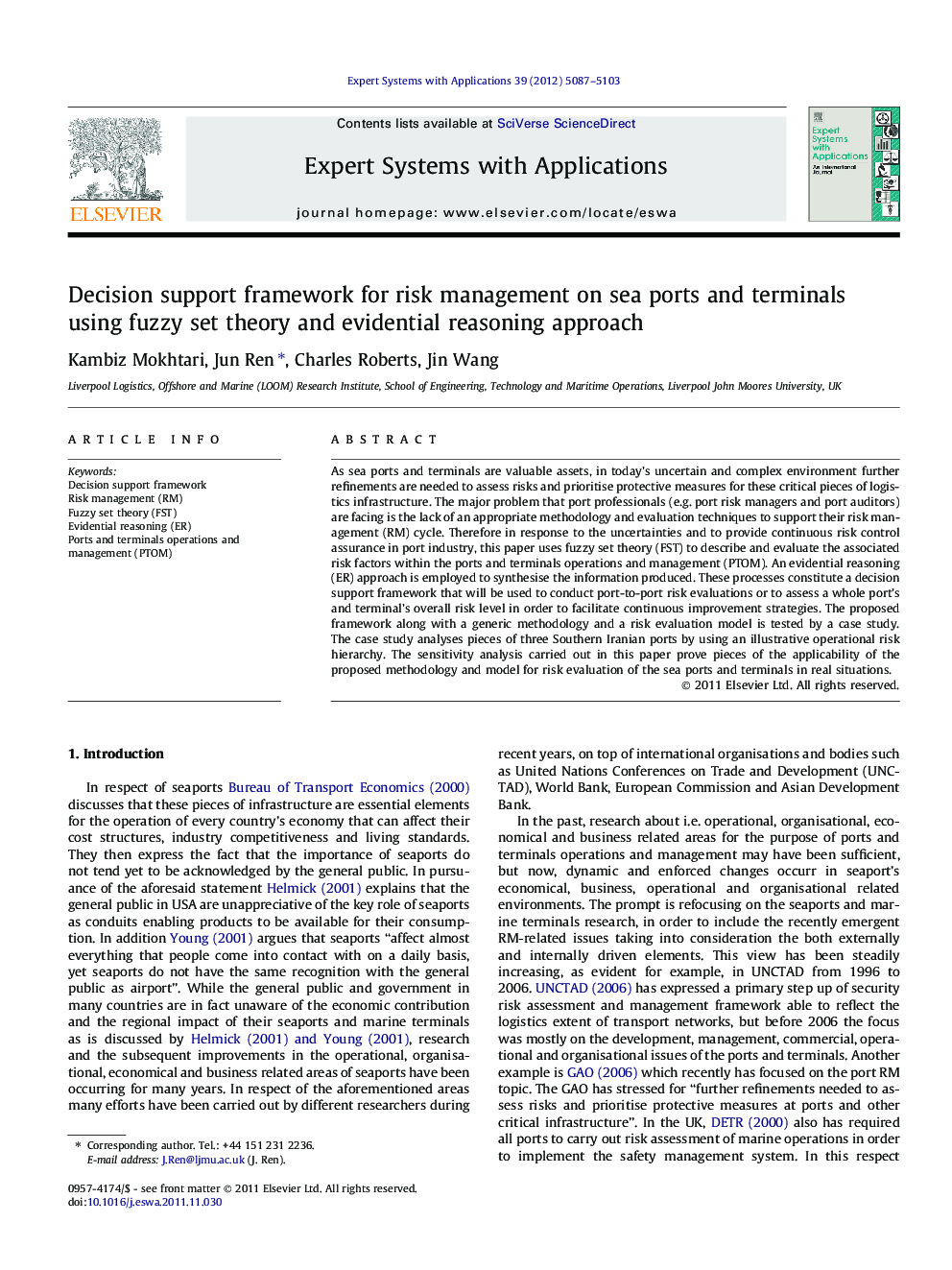| Article ID | Journal | Published Year | Pages | File Type |
|---|---|---|---|---|
| 384846 | Expert Systems with Applications | 2012 | 17 Pages |
As sea ports and terminals are valuable assets, in today’s uncertain and complex environment further refinements are needed to assess risks and prioritise protective measures for these critical pieces of logistics infrastructure. The major problem that port professionals (e.g. port risk managers and port auditors) are facing is the lack of an appropriate methodology and evaluation techniques to support their risk management (RM) cycle. Therefore in response to the uncertainties and to provide continuous risk control assurance in port industry, this paper uses fuzzy set theory (FST) to describe and evaluate the associated risk factors within the ports and terminals operations and management (PTOM). An evidential reasoning (ER) approach is employed to synthesise the information produced. These processes constitute a decision support framework that will be used to conduct port-to-port risk evaluations or to assess a whole port’s and terminal’s overall risk level in order to facilitate continuous improvement strategies. The proposed framework along with a generic methodology and a risk evaluation model is tested by a case study. The case study analyses pieces of three Southern Iranian ports by using an illustrative operational risk hierarchy. The sensitivity analysis carried out in this paper prove pieces of the applicability of the proposed methodology and model for risk evaluation of the sea ports and terminals in real situations.
